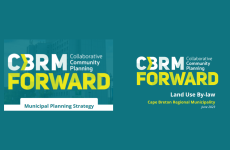I am well aware that only the wonkiest of wonks (a category in which I place myself) will be interested in this detailed time-line of the CBRM Taxi By-law or as we are now calling it, the Passenger Vehicle for Hire By-law, but I find making a timeline helpful in understanding a story and once I’ve made it, I figure I might as well share it, so here you go.
I must acknowledge that the starting point is somewhat arbitrary, I could have picked the 2008 amendment (which dealt with fares only) or the 2017 amendment (although this was truly a housekeeping change, meant to reflect the fact that appeals under the by-law would in future be heard by the municipality’s newly established Appeals Standing Committee).
I’ve chosen 2019 because that was the year this most recent review was first requested. I should also note that much of this information is in my Taxi By-law story, but not all of it.

Photo by Petar Milošević, CC BY-SA 4.0, via Wikimedia Commons
24 January 2019: The owners of District 11 Taxi in River Ryan, Chuck Ogley and Elizabeth Doyle, tell the Cape Breton Post the CBRM is harassing their drivers and threatening to shut their business down.
Paul Burt, the municipality’s manager of building, planning and licensing laws, tells the paper District 11 is not operating in accordance with the Taxi By-law; citing violations including “showing up and undercutting fares, advertising senior rates, affordable rates and [operating] shuttle service they are not licensed for,” as well as the absence of two-way radios in the company’s cars.
Ogley tells the paper their plans “include expansion across the CBRM”:
However, the two-way antenna-to-antenna radios that taxi companies use have limited range. He said the digital system their company uses allows communication with drivers across the CBRM and it’s safer and hands-free but the CBRM won’t approve it.
He said they are paying for a Sydney office now but are not allowed to provide service there until they put in the antenna-to-antenna system.
“The two-way radios are dinosaurs, you can’t even buy parts for them anymore locally.”
Burt said the taxi bylaw requires all cabs to be equipped with a dispatch-to-taxi, two-way radio system only.
The digital system doesn’t fit the current bylaw, but anyone can take steps to request an amendment to a bylaw, Burt added.
4 November 2019: At a meeting of the CBRM’s general committee (made up of the mayor and councilors), District 4 Councilor Steve Gillespie adds an item to the agenda calling for a staff review of the Taxi By-law, last amended in 2008.
Gillespie tells council that having discussed the issue with “council colleagues, bylaw enforcement, the planning department and taxi operators” and taking into account changes that have been made by other Nova Scotia municipalities, it is “time for the CBRM to address the 20-year-old rules that govern our taxi industry.”
His motion is seconded by then-District 11 Councilor Kendra Coombes, who notes that she and Gillespie had previously discussed the matter with Burt.
Coombes describes the old by-law as “antiquated,” particularly in terms of its dress code which, she notes, no modern cab driver adheres to, and its lack of flexibility around “new technology.”
The councilors who speak on the motion all agree it is time for an overhaul. Then District-7 Councilor Ivan Doncaster mentions issues like drivers “smoking at the hospital” and the lack of regulation governing safety issues like winter tires.
Council passes Gillespie’s motion unanimously.
15 June 2021:
By the time the subject returns to the agenda, the CBRM has a new mayor and the seconder of the original motion, Councilor Coombes has become an MLA.
Paul Burt blames COVID and the 2020 elections for the 19-month delay in bringing the issue back to council, but he also cites a request for amendments to the Taxi By-law from an unnamed applicant as the impetus for getting the ball rolling again:
 The only one of these to inspire a question from council is the least important: Burt is asked about hatchbacks and explains that when the current by-law was drafted, a hatchback was generally a sub-compact car not considered suitable as a taxi (they wanted “some professionalism” in the industry and cars that were “truly large and comfortable,” he says). By 2021, with the advent of the SUV, all that had changed.
The only one of these to inspire a question from council is the least important: Burt is asked about hatchbacks and explains that when the current by-law was drafted, a hatchback was generally a sub-compact car not considered suitable as a taxi (they wanted “some professionalism” in the industry and cars that were “truly large and comfortable,” he says). By 2021, with the advent of the SUV, all that had changed.
Burt says if the request had been simply to add hatchbacks to the definition of taxi, they probably would simply have done it without initiating a review of the entire by-law, but the other requests (which imply an intention to launch an app-based ride-share service like Uber or Lyft) need to be dealt with.
Council votes (again) to instruct staff to review the by-law:
June-November 2021: At some point between June and November 2021, a working group is struck to study the by-law. The group includes representatives of council, CBRM staff, taxi users, the Cape Breton Regional Police and taxi owners. I have requested a list of the names of the people who participated in that working group but as of press time, had not received it. I know, from council discussions, that Gillespie is the only councilor in the group, that the police are represented by two officers, one of whom is Deputy Chief Stephen MacKinnon, and that the taxi owners are represented by Sheila Penney, owner of Bud’s Taxi in Glace Bay, and Len MacIntyre, then-owner, operator and dispatcher of Crown Taxi, Sydney Mines (and winner of a Governor General’s Award for Bravery).
30 November 2021: CBRM staff and the working group invite all licensed taxi company owners to a meeting at Center 200. Each company is, according to Burt, represented by at least one employee. Proposed changes to the by-law are discussed and some company owners request that a survey be conducted.
The working group develops two surveys: one to gather input from the public, one to gather input from taxi owners, drivers and other staff. This last is distributed directly to owners who are asked to pass it along to staff.
18 February-6 March 2022: Responses to the surveys are accepted.
8 March 2022: Burt appears before council to recommend a 30% hike in taxi fares, due to rising operating costs and the hard times facing taxi operators (and drivers) due to COVID.
Burt says the increased rates will remain in place until the CBRM adopts its new Taxi By-law. A public hearing on the proposed increase is set for March 25 and advertised in the Cape Breton Post on March 10 and on the CBRM’s Facebook page. Due to the ongoing pandemic, residents are advised to comment via voicemail or email.
25 March 2022: Burt tells council there has been no public response to the proposed rate increase. Council votes unanimously to approve the 30% fare increase
 12 July 2022: Burt appears before council to present the working group’s recommended amendments to the Taxi By-law. He says the group has been meeting “almost monthly” for a year and this past month finalized its recommendations and met with taxi owners to discuss them. Burt says the taxi owners were “very in favor” of the new by-law which “wasn’t a bit controversial.”
12 July 2022: Burt appears before council to present the working group’s recommended amendments to the Taxi By-law. He says the group has been meeting “almost monthly” for a year and this past month finalized its recommendations and met with taxi owners to discuss them. Burt says the taxi owners were “very in favor” of the new by-law which “wasn’t a bit controversial.”
During the council discussion that follows, Councilor Gillespie hails Penney and MacIntyre for the “terrific job” they did as representatives of the taxi industry.
Burt says the group received 708 responses to its citizen survey, which the Planning Department felt was “a very good response” but only seven industry responses—from one owner, one driver/owner, five drivers and one dispatcher.
As part of the survey, citizens were shown “the fare schedule” and asked how affordable they considered taxis to be on a scale of 0 (extremely unaffordable) to 10 (extremely affordable). The majority of responses were “above a five” but I have to wonder if “the fare schedule” they were shown was the one in force at the time the survey responses were collected, or the one—featuring a 30% hike—that was introduced two days after that date.
These are the amendments the working group proposed to council:

Excerpt from agenda for 12 July 2022 meeting of CBRM council.
Those “housekeeping” items intended to “improve the clarity of the By-law” seem to be of varying significance. For example, they include taking on board a suggestion from Portside Law, which had previously conducted a review of all the municipality’s by-laws, that the by-law definitions be in alphabetical order. But they also seem to include “clarifying” the fact that one company may operate in multiple service areas (although this won’t be discussed until the 31 January 2023 council meeting).
Council discusses a number of items, like enforcing the no-smoking by-law in cabs (which the province refuses to do), increasing fines for various infractions and relieving drivers of the responsibility of handling luggage.
Burt tells council he has no problem with two companies working together to provide 24-hour service, echoes Councilor Gillespie’s suggestion that the taxi companies form an association the better to speak with “one voice,” tells District 8 Councilor James Edwards that Uber and Lyft are taxis as far as he’s concerned and will be regulated as such and notes that better record-keeping will help settle disputes between customers and drivers.
District 11 Councilor Darren O’Quinn says that all the cab companies in his area are “very happy” with the new by-law and Councilor Gillespie says that as a member of the working group, he too is happy with everything in it.
31 January 2023: Burt returns to council with a draft of the actual by-law for First Reading. It has been given a new name—the Passenger Vehicle for Hire By-Law—to reflect the fact that it regulates more than just taxis (also limos and shuttles and rideshares).
District 9 Councilor Ken Tracey uses his first chance to speak on the motion, which also calls for a public hearing on the new by-law, to tell Burt he’s received a call from a cab owner representing all the owners in his district wanting to know if the new by-law will permit cabs to work in more than one service area.
Burt says the by-law never prevented this and explains that this has been “clarified” in the new version. He stressed that in addition to paying a fee to operate a cab in more than one service district, the owner must also have a physical location in the area although, under questioning, it becomes clear that this doesn’t mean having separate dispatchers in each district.
Councilors discuss discrepancies in the original by-law between the maps of the service districts and the written descriptions of the districts, saying the descriptions will be removed in the new by-law leaving just the maps.
The case of the businessperson who has recently bought three cab companies is discussed (although the businessperson is not named, he will later be identified in the Post as Craig Boudreau) and Burt again tells councilors that operating in multiple districts has never been prohibited.
In the end, councilors vote to approve first reading of the by-law.
 A public hearing and second and final reading are scheduled for February 28.
A public hearing and second and final reading are scheduled for February 28.
28 February 2023
The Public Hearing on the Passenger Vehicle for Hire By-law is held. Three taxi owners come to the podium to speak and all are concerned about what they say is a change to the by-law allowing a company to do business in multiple service districts without employing multiple dispatchers.
Burt continues to insist this was not prohibited under the old by-law and that the new by-law simply “clarifies” the wording.
This does not satisfy the gallery and in the end, rather than approve the by-law on second reading, council decided to instruct staff to bring the by-law back to the industry (Burt had suggested they meet with the taxi owners to discuss the two versions of the by-law) and “re-engage” the working committee if necessary, before bringing it back to council for Second Reading.
Planning Director Michael Ruus intervened to suggest that if what council is saying is that it doesn’t want cab companies or rideshare companies to operate in multiple service districts, it should make that clear.
Mayor McDougall-Merrill said the issue would return during the next regular meeting of council.
Burt asked that anyone with a specific question about the by-law should email him, saying he would include the question and his answer in the next presentation to council.








